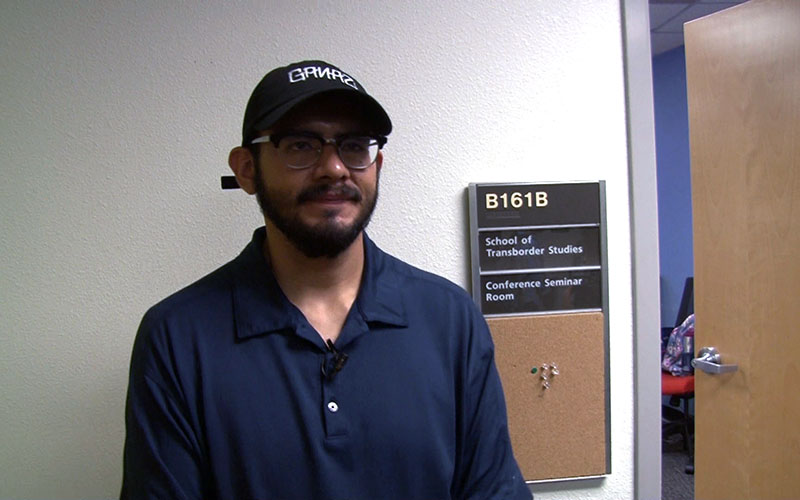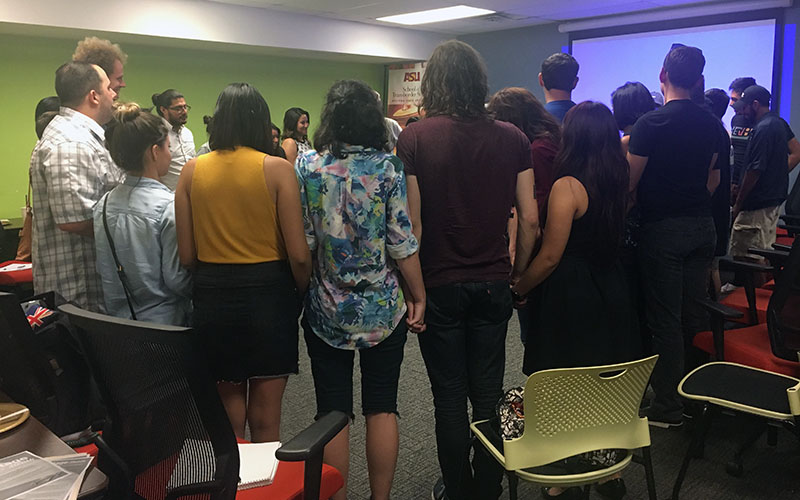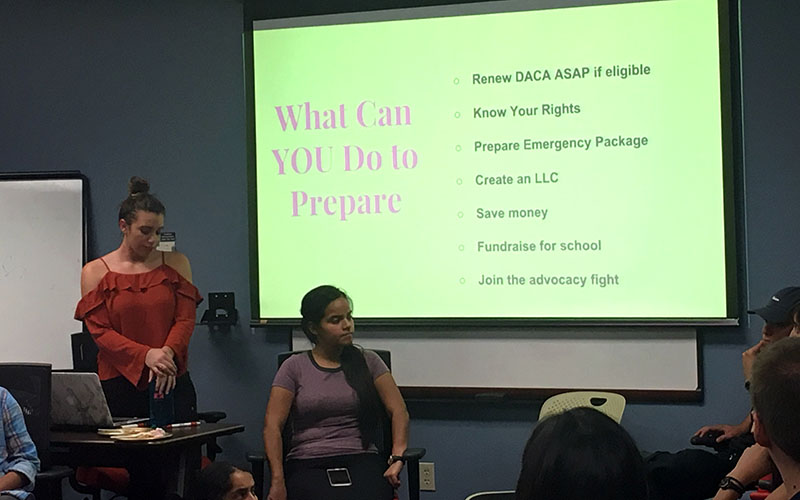PHOENIX — On Thursday evening, Arizona State University students crowded into a makeshift conference room, pulling chairs into a circle. When there wasn’t any room left, some students sat on the floor in the middle. They took turns introducing themselves – sharing their names, their majors and their fears about the repeal of DACA.
The Undocumented Students for Education Equity holds a group meeting every other Thursday and usually, they have plenty of chairs available, but this one was different. This was the first after U.S. Attorney General Jeff Sessions announced President Donald Trump’s decision to end DACA.
As the students introduced themselves and shared their feelings about the decision, one word showed up over and over again: “terrified.”
Denis Alvarez, a freshman DACA recipient, nervously braided and unbraided her hair as others introduced themselves. She wore a baby blue T-shirt with a white balloon and the words “dream up”. She introduced herself as a freshman secondary education major.
“I’m here because I want to know what our next steps are going to be,” Alvarez said.
She wasn’t alone in her desire for action. The organization spent most of the meeting addressing practical concerns such as when students are eligible to renew, resources for handling the $495 application fee and strategies for grassroots activism. On a screen in the front of the room, a PowerPoint presentation showed a slide urging students to “fight for a permanent solution.” The next slide read “What Can YOU Do to Prepare.”
Belén Sisa, a DACA recipient and political science senior, helped guide the meeting.
“We are going to be in for the fight of our lives,” Sisa said. “It’s time to show up.”
Throughout the campaign and his short time in office, Trump has expressed different views on DACA. He has alternatively said he would “immediately terminate” DACA and then that he would treat DACA recipients “with great heart.” Sisa said these contradicting statements added to the heartbreak she feels.
“We were in sadness and heartbreak out of disbelief that someone who said that they loved DREAMers, someone who said that they would take care of us and keep us safe, would make a decision like this,” Sisa said.
In a tweet, Trump said Congress “now has 6 months to legalize DACA.”
Congress now has 6 months to legalize DACA (something the Obama Administration was unable to do). If they can’t, I will revisit this issue!
— Donald J. Trump (@realDonaldTrump) September 6, 2017
Edder Diaz Martinez, an ASU student who has DACA, said the waiting period is adding to the uncertainty of life as a DACA recipient.
“Our lives were already uncertain but now obviously we have a six month expiration date on the security of our financial life, of our life in general,” Martinez said.
Without DACA, Martinez said, he wouldn’t qualify for in-state tuition at ASU. He also wouldn’t have a driver’s license or a work permit.
“That’ll push us into the shadows,” he said. “We’ll exist but we won’t be within productive members of society like before.”
At the end of the meeting, Korina Iribe, a graduate student in nonprofit leadership and management, instructed the students to stand from their chairs. She asked them to hold the hands of the person next to them. There was nervous laughter as people moved to make space for each other. In a few moments, every person in the room was held together by a chain of hands.
“Say the name of the person that compelled you to be here today,” Iribe said. “That’s gonna be our driving force today, tomorrow and the next six months.”
A few moments passed in silence before the students spoke the names aloud. Some said their own names. Some said their friends’ or parents’ names. Some stayed silent.
“We are a resilient community,” Iribe said. “We have overcome before. Do y’all believe that?”
Everyone cheered.
“Yeah!”
“I said, do y’all believe that?”
The cheering was louder this time.
“Yeah!”
“Se puede?” Iribe asked.
Can we?
“Si se puede!” the students shouted back.
“Se puede?” Iribe asked again.
“Si se puede!”
Yes, we can.


